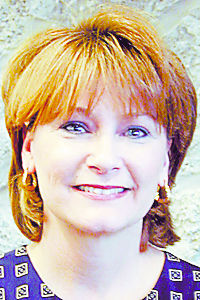Enrollment varies by major

Kelly Wilson
Missouri Southern offers more than 140 different choices of major fields to study. A Fall 2012 study from Registrar Cheryl Dobson found that the number of students enrolled in each available major ranges from 629 to one.
Twenty-three majors have just one student. Twenty-three is also the number of majors that have over 50 students.
The most popular major at Southern is undeclared with 629 students. The second-highest number comes from students pursuing a criminal justice degree: 397. So why such a broad range?
The Fall 2012 research found that 12 of the 23 majors with one student were in the education department.
These include specialized courses of study such as secondary education-chemistry or secondary education-German.
According to Dr. Al Cade, interim dean of the school of education, students enrolled in secondary education are a lot like double majors.
“Those secondary education majors have two advisers,” Cade said. “You have one in the content because the majority of the hours come in the content, and then you have one adviser in the education area.”
Cade compared being an elementary education-German major to being a German major who also takes education courses.
“Typically, there are more hours required to graduate with a B.S.E. than a B.A. because of the additional education courses,” he said.
Other degree programs with one student enrolled include highly specialized or advanced degrees that, like specialized education, fall under the umbrella of a wide ranging major.
At the opposite end of the spectrum is the most broad and populous enrollment, the undeclared major. According to Kelly Wilson, director of advising, counseling and testing services, “undeclared” has recently been made a “declared major with a major code.”
She added that the numbers of undeclared students can be misleading because they are always changing.
“About 60 percent of the freshman class come in as undecided,” Wilson said.
The ACTS office works with undeclared students to help them choose a major by their third semester. One way the department does this is through the University Experience 105 course called Career and Life Planning. The one-credit hour course is offered every eight weeks.
“It spends two hours a week on you,” Wilson said. “We do assessments on what is it you want to do? What you find is a pattern, you start looking at what career fields fit in that, and at that point, they are ready to declare.”
Somewhat similar, because it doesn’t follow a specific path, is the bachelor of general studies degree with 136 students enrolled. It has the eleventh-highest enrollment numbers at Southern. One reason for this, according to Wilson, is that many students have a career in mind but none of the degree options fit what they want to do.
“Every degree has a backbone to it,” Wilson said. “You have general education, 40 hours of upper division, you have five writing intensive courses, electives … But they’re more prescriptive, where general studies says you can pick from any area of study that you meet any prerequisites for.”
Many students enter the criminal justice degree program, the second highest enrollment at Southern, because they know what type of career they want to pursue, said Dr. Stephen Verril, head of the criminal justice department.
“Here, the criminal justice degree is very practitioner-based, more so than any university typically tries to do,” he said. “More so than any of the universities around here, so it may very well drive interest here.”
What he means by “practitioner-based” is that Southern’s criminal justice department offers hands-on learning.
The department has police cars and simulated cars for students to practice driving. It has a firearms range and even a model apartment where students can practice investigations.
In addition, the degree program itself is large.
“Criminal justice, if you look at it at any university, is thought to be one of the biggest majors,” Verrill said. “Here, it’s a large major, it’s a very large program. It’s even large compared to any university, what we have for criminal justice.”
A link between all of these high-enrollment majors seems to be the job market. Education majors may choose to teach a specialized subject rather than major in it.
Undeclared students are still weighing their options and, through the Career and Life Planning course, may decide which major is both economical and gratifying to them.
General studies majors and criminal justice majors tend to be career-oriented rather than choosing theory-based or critical-thinking-based degrees.
Your donation will support the student journalists of Missouri Southern State University. Your contribution will allow us to purchase equipment and cover our annual website hosting costs.



























